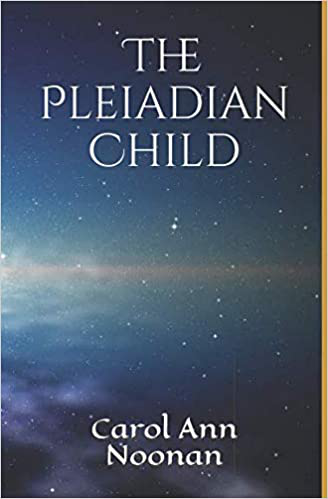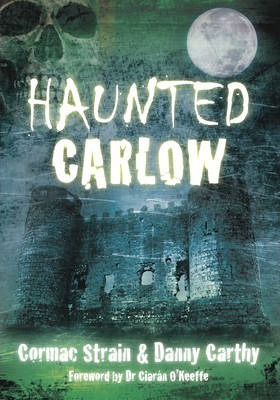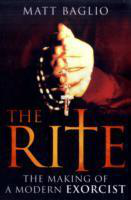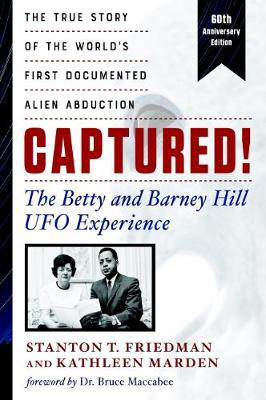The Myth of Paraunity: A Shield for Inconclusive Findings?
Ghost/Paranormal
Sunday 8th, September 2024
4 minute read.
In recent years, the concept of "Paraunity" has grown in popularity within the paranormal community globally. The idea, which champions harmony, cooperation, and mutual support among investigators, has been presented as a way to strengthen the field. On the surface, Paraunity appears to be a noble pursuit, encouraging collaboration and the sharing of ideas. However, it may be argued that it doesn't exist or even that the concept is merely a façade, used to stifle questioning of inconclusive or dubious findings within the paranormal community.
Paraunity is frequently invoked by paranormal groups and investigators as a call for solidarity. Its supporters claim that by working together, teams can advance the field of paranormal research, which is often maligned by mainstream science. The argument is that internal division weakens the credibility of paranormal studies and that by fostering unity, these groups can present a more cohesive and respectable front to the public.
One of the fundamental issues with Paraunity is that it can discourage healthy scepticism. Science thrives on questioning and re-evaluating results. Paranormal investigations, by their very nature, often produce inconclusive data. Strange noises, cold spots, or erratic readings on electromagnetic field (EMF) detectors are frequently cited as evidence of supernatural activity, but they could just as easily have natural explanations.
Paraunity, it seems, may have morphed from a call for teamwork into a tool to protect weak research. Dismissing legitimate critiques under the guise of maintaining harmony not only prevents the field from advancing but also damages its credibility.
Inconclusive findings are one of the most significant challenges facing paranormal investigations. Teams often present evidence that lack clear conclusions, such as blurred photographs or ambiguous audio recordings, commonly known as EVPs (Electronic Voice Phenomena). While these findings can be intriguing, they are not definitive proof of the paranormal.
Many of these investigations fail to account for environmental variables. For example, a creaky floorboard in a supposedly haunted building might seem spooky, but it could simply be the result of natural settling. Similarly, an EMF spike could be caused by faulty wiring or nearby electrical devices. However, when such findings are challenged, proponents of Paraunity may react defensively, arguing that criticism undermines the collective efforts of the community.
Another concern is the commercialisation of paranormal investigations, which has further complicated the issue of Paraunity. Television shows, public ghost hunts, and paid tours have turned paranormal investigations into a lucrative business. In some cases, groups may be incentivised to promote findings that are more dramatic or conclusive, even when the evidence is weak or questionable.
For example, a public ghost hunt in an old manor house might generate hundreds of euros in ticket sales. If the group running the event fails to produce any compelling evidence of supernatural activity, it risks disappointing customers and losing future business. This commercial pressure may encourage some groups to exaggerate their findings or downplay inconclusive results.
The truth is, some groups are in it for the money or fame, they don’t want to admit when they’ve found nothing because it doesn’t sell. But when someone points this out, they’re accused of being negative or not supporting Paraunity. It’s a convenient way to avoid accountability.
If the paranormal field is to be taken seriously, it must embrace healthy scepticism and allow room for criticism. Blindly accepting inconclusive findings for the sake of maintaining Paraunity does a disservice to those who genuinely want to advance the field. Investigators must be willing to question their own data, consider alternative explanations, and welcome outside critiques.
Paraunity could still have a positive role in paranormal research if it were redefined. Instead of being a tool to suppress dissent, it could be used to foster constructive dialogue and cooperation without sacrificing scientific integrity. Paranormal researchers should work together to raise the standards of investigation, ensuring that the evidence they present is as rigorous as possible.
In conclusion, Paraunity, as it currently stands, appears to be more of a shield for inconclusive or weak findings rather than a genuine effort to advance the field of paranormal research. If the community wants to be taken seriously by the broader scientific world, it must welcome questioning, embrace scepticism, and strive for greater transparency.
Paraunity is frequently invoked by paranormal groups and investigators as a call for solidarity. Its supporters claim that by working together, teams can advance the field of paranormal research, which is often maligned by mainstream science. The argument is that internal division weakens the credibility of paranormal studies and that by fostering unity, these groups can present a more cohesive and respectable front to the public.
One of the fundamental issues with Paraunity is that it can discourage healthy scepticism. Science thrives on questioning and re-evaluating results. Paranormal investigations, by their very nature, often produce inconclusive data. Strange noises, cold spots, or erratic readings on electromagnetic field (EMF) detectors are frequently cited as evidence of supernatural activity, but they could just as easily have natural explanations.
Paraunity, it seems, may have morphed from a call for teamwork into a tool to protect weak research. Dismissing legitimate critiques under the guise of maintaining harmony not only prevents the field from advancing but also damages its credibility.
Inconclusive findings are one of the most significant challenges facing paranormal investigations. Teams often present evidence that lack clear conclusions, such as blurred photographs or ambiguous audio recordings, commonly known as EVPs (Electronic Voice Phenomena). While these findings can be intriguing, they are not definitive proof of the paranormal.
Many of these investigations fail to account for environmental variables. For example, a creaky floorboard in a supposedly haunted building might seem spooky, but it could simply be the result of natural settling. Similarly, an EMF spike could be caused by faulty wiring or nearby electrical devices. However, when such findings are challenged, proponents of Paraunity may react defensively, arguing that criticism undermines the collective efforts of the community.
Another concern is the commercialisation of paranormal investigations, which has further complicated the issue of Paraunity. Television shows, public ghost hunts, and paid tours have turned paranormal investigations into a lucrative business. In some cases, groups may be incentivised to promote findings that are more dramatic or conclusive, even when the evidence is weak or questionable.
For example, a public ghost hunt in an old manor house might generate hundreds of euros in ticket sales. If the group running the event fails to produce any compelling evidence of supernatural activity, it risks disappointing customers and losing future business. This commercial pressure may encourage some groups to exaggerate their findings or downplay inconclusive results.
The truth is, some groups are in it for the money or fame, they don’t want to admit when they’ve found nothing because it doesn’t sell. But when someone points this out, they’re accused of being negative or not supporting Paraunity. It’s a convenient way to avoid accountability.
If the paranormal field is to be taken seriously, it must embrace healthy scepticism and allow room for criticism. Blindly accepting inconclusive findings for the sake of maintaining Paraunity does a disservice to those who genuinely want to advance the field. Investigators must be willing to question their own data, consider alternative explanations, and welcome outside critiques.
Paraunity could still have a positive role in paranormal research if it were redefined. Instead of being a tool to suppress dissent, it could be used to foster constructive dialogue and cooperation without sacrificing scientific integrity. Paranormal researchers should work together to raise the standards of investigation, ensuring that the evidence they present is as rigorous as possible.
In conclusion, Paraunity, as it currently stands, appears to be more of a shield for inconclusive or weak findings rather than a genuine effort to advance the field of paranormal research. If the community wants to be taken seriously by the broader scientific world, it must welcome questioning, embrace scepticism, and strive for greater transparency.



